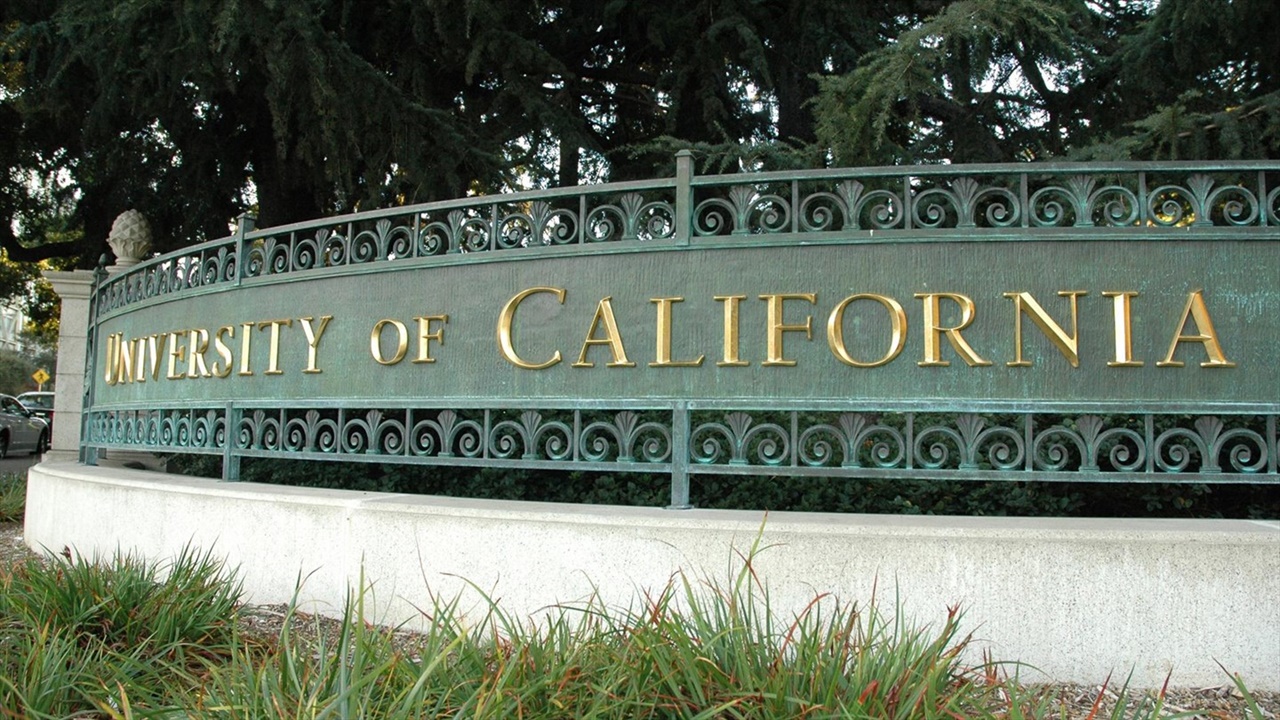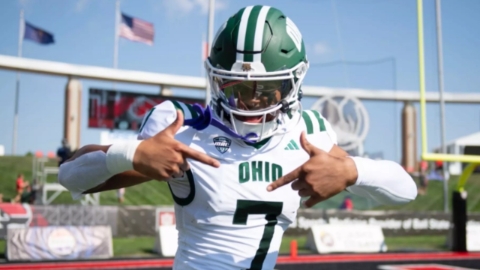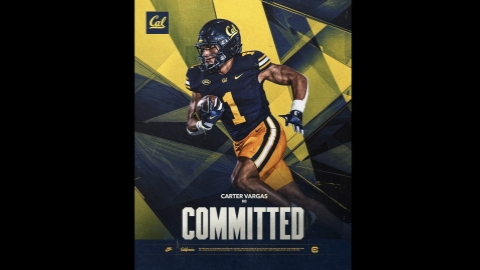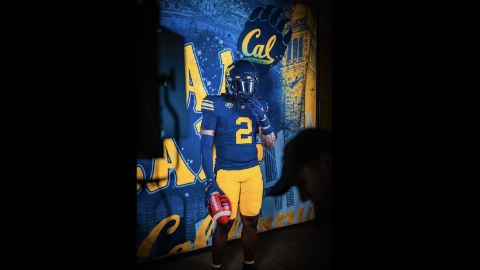Hell why not make him Chancellor **** ITmovielover said:
Wilcox for joint HC / AD.

Cal holds a unique place in the world as an institution of higher learning, a catalyst for societal change, and a magnet for world-class students and teachers.
There’s no doubt that the ethos of the University of California lies in its intellectual and academic brand. And while that brand can be amplified and reinforced by success in athletics, such success has to occur in a manner consistent with that brand.
This article is not intended to evolve Cal into something it simply never has been or ever will be. Instead, it’s a wake-up call that what the University wants and arguably needs from athletics is at existential risk.
We start with the presumption that Cal, as the flagship of the UC system and the most renowned and respected public institution of learning in the world, sees value in offering students the ability to compete at the very highest levels of athletic competition. And that through athletics, not only do those students who participate have their experience at Cal enriched but a sense of permanent community and connection is created with the broader student population. And given that Cal increasingly relies on private donations to fund itself, the athletic teams that represent the University are essential to ongoing alumni and donor engagement.
With that belief in place, one has to admit the reality that all of Cal’s athletic programs exist and are enabled only through the revenue generated by the football program. Men’s basketball can and usually does contribute a small amount of profit and other sports through endowments are somewhat self-sufficient, yet the Athletic Department as a whole exists because of football.
Football contributes between $25 and $35M annually to the Athletic Department, after paying 100% of its own expenses. If that money were to go away or be seriously mitigated, it’s not simply that sports would have to be cut, the infrastructure that supports any remaining programs would be seriously tested. And far more importantly in the long term, Cal without football that matters would almost certainly lead to the loss of connection students and alumni have with the University, easily costing the school billions of dollars in future donations.
Despite the above, Cal has never prioritized football much less seen the obvious ROI in investing in the program. In fact, they have ignored the fiscal realities embraced by virtually every other major university over the last several decades and chosen to do just the opposite. Starting roughly in 2007, Cal’s then Athletic Director Sandy Barbour made the decision to take all donations made to football above a certain dollar threshold and reallocate those dollars to balance the broader athletic department budget. Let’s be very plain about this - donors were being intentionally misled and critical dollars needed for football to keep the team competitive, fill Memorial Stadium, and catalyze broader donations and giving to the University were being spent elsewhere. At another institution, it's not hard to imagine that this kind of financial chicanery would have resulted in multiple people being fired once it came to light.
That practice continued unabated until an exiting administrator shared these details with a group of donors which led to the creation of the Championship Caliber Fund, which places football donors in a separate auditable fund tracked by donors to ensure it is spent only on football and at the discretion of the head football coach. A fund whose existence was fought against by the school until it was clear that donors would simply stop giving without it. Decades of inadequate funding put the football program in a position where not only were its relative revenues declining but it was in the bottom quartile of Pac-12 programs with its operating budget, effectively eliminating it from being consistently competitive. In addition, fan and donor support had slipped to the point that Cal came within a single vote from North Carolina State of not existing - at least not in a form that would have any chance of continuing to support the University’s mission of athletic diversity and long-term alumni engagement.
It’s now the end of 2023, Cal has been given a lifeline via admission into the ACC. As a result of timely and effective fundraising and organizational administration catalyzed by donors and specifically the Bear Insider community, Cal created an NIL program that has allowed Cal football and men’s basketball to be competitive. Yet the future of the NIL collective is uncertain as its momentum is stymied by a decade-plus of the school’s willful failure to make the institutional commitment and investment necessary for football.
If Cal truly does want to have a viable athletic program, the way forward is clear. The leadership of the Chancellor, the Athletic Director, and the head football coach have to be committed to a consistently winning football program and they have to be capable of executing against that goal. Further, Cal needs to either see a meaningful shift in the approach of its existing large donors to athletics or very quickly catalyze a new generation of athletic philanthropists.
It starts with the Chancellor. The search is underway to replace Carol Christ and the Regents have to decide whether they believe in and care to support the value of Cal having a strong athletic program. If they do, the new Chancellor must have a background and understanding of today's college football landscape and be prepared to be a change agent, evaluating and as necessary evolving every aspect of the Athletic Department: How it is led and run, and the critical importance of supporting and investing in the football program. If you care about athletics at Cal, if you believe in the value that it provides the University, then you need to be laser-focused on the search for a new Chancellor. One cannot overstate the importance of hiring the right person for this role for the future of Cal athletics.
The history of Cal athletics and football as it has existed for 100 years is no longer relevant to the present or future. Disappointment, regret, and hand-wringing on both how Cal has handled donor relations in the past as well as how college athletics at large have evolved with the large amounts of money now involved, doesn’t change the reality of where things sit today. Cal cannot complain its way to success or even survival. It needs to adapt to the facts on the ground as every other team competing at this level has done and is doing. Once Cal accepts this reality it must solve the problem of how Cal, with its unique place in the universe of higher learning, finds a way to not only survive but to thrive given the new reality. Instead of being a victim of the changed circumstance, Cal can be a leader to help resolve the difficult puzzle of reconciling conference realignment, student-athlete well-being, and how to blend the profit motive of the NCAA, TV networks, and the conferences into a more reasoned and practical foundation for the future.
Once a Chancellor is in place who is awake to the current situation and equipped to tackle the inherent challenges, Cal’s most critical decision is to ensure that Cal has an Athletic Director who embraces and enables the prioritization of football with a near-term goal of ensuring Cal survives the next round of conference musical chairs.
That Athletic Director has to be a big-picture thinker. Someone who cares less about being a risk mitigator and more about investing against and solving for the opportunities and challenges that ensure Cal can have a vibrant and successful athletic program a decade from now. They need to truly understand and create plans for fan and donor engagement, including making former student-athletes continue to feel like part of the Cal family. They need to hire administrators who realize their job is to support and enable the football program rather than find ways to continuously block every innovation that could lead to success. It is undeniable that Cal has institutionally empowered a group of mid-level bureaucrats who see their sole job to say “no” to whatever question is put in front of them. They are continuously rewarded and promoted for doing so. This cultural failure, as much as anything, lies at the root of many of Cal’s challenges in achieving success in its revenue sports. And Cal desperately needs strong leaders at both the Chancellor and the Athletic Director level who can help to shift this paradigm.
Balancing the budget, which has occupied the majority of the current administration’s focus for several years, is an insufficiency and becomes criminal when it requires under-investing in the program which the entirety of the department relies on for revenue. Cal’s Athletic Director has to see their primary job as removing roadblocks from the Bears having a winning football program and hiring and then holding the head football coach accountable for success.
Again, let’s be clear. You can have academic integrity, enjoy the value of high-character student-athletes be part of Cal’s unique culture, and still win football games. This is not a zero-sum game. Stanford, Cal’s arch-rival, had a top 10 program nationally for nealry a decade in the very recent past.
An expertise in football, a background in marketing, and the ability to think holistically about Cal amid a challenging and dynamic landscape are essential skills for the Athletic Director.
It is not easy to be the head football coach at Cal. Sonny Dykes success at TCU underscores that success comes not simply from the leader of the football program as much as the institutional support behind them. That said, the head coach has to be a willing fundraiser, someone who can catalyze donor support. They have to have an almost misguided level of confidence that they can win at Cal and a near ruthless resolve to make decisions using the simple lens of what will help this team win football games.
They cannot be afraid of pushing back on the Athletic Director, the Chancellor, and the University. Upsetting the apple cart and occasionally breaking glass has to be part of the job description. Cal’s historical problem has often been that it has been too deeply rooted in the acceptance of mediocrity and solving for things other than how best to support football.
Lastly, the donor base has to educate itself and wake up to the reality of today's college athletics landscape. The transfer portal, NIL, conference re-alignment, etc. If they truly want Cal to have a vibrant athletic program into the medium-term future, they need to not only step up with their wallets, they need to hold accountable the Chancellor, the AD, and the head football coach in a way that frankly has not historically felt comfortable for this group. There has been, and continues to be, far too much focus from our donor community on either the grievances of the past or some idealized conceptualization of what college athletics “should” be. The reality is that college athletes can now earn money, much as every other college student has always been able to do. Decrying this phenomenon does not change the reality. We either need to live with this or we need to abandon the pretense that we are competing at the highest level. And candidly concerns over the soul of athletics by those who have stood by, and often facilitated, more and more money pouring into coaching staffs and facilities rings hollow. Money is part of athletics. It always has been.
The transfer portal opens tomorrow. There’s a real chance that Cal’s most exciting and dynamic football talent over the past ten years will leave the Bears because another school has shown they care more about football and him than does Cal. For the Cal Legends Collective to have anything close to the level of sufficient resources for the Bears to have a winning football program in 2024, at least one large cornerstone donor has to immediately be found..
The status quo is simply not tenable. A 6-6 regular season and minor bowl isn’t going to lead to new season ticket sales and increased donations to football. If resources aren’t found, more good players are going to leave and Cal will be unable to compete in the transfer portal to find competitive replacements.
TIme is running out.



